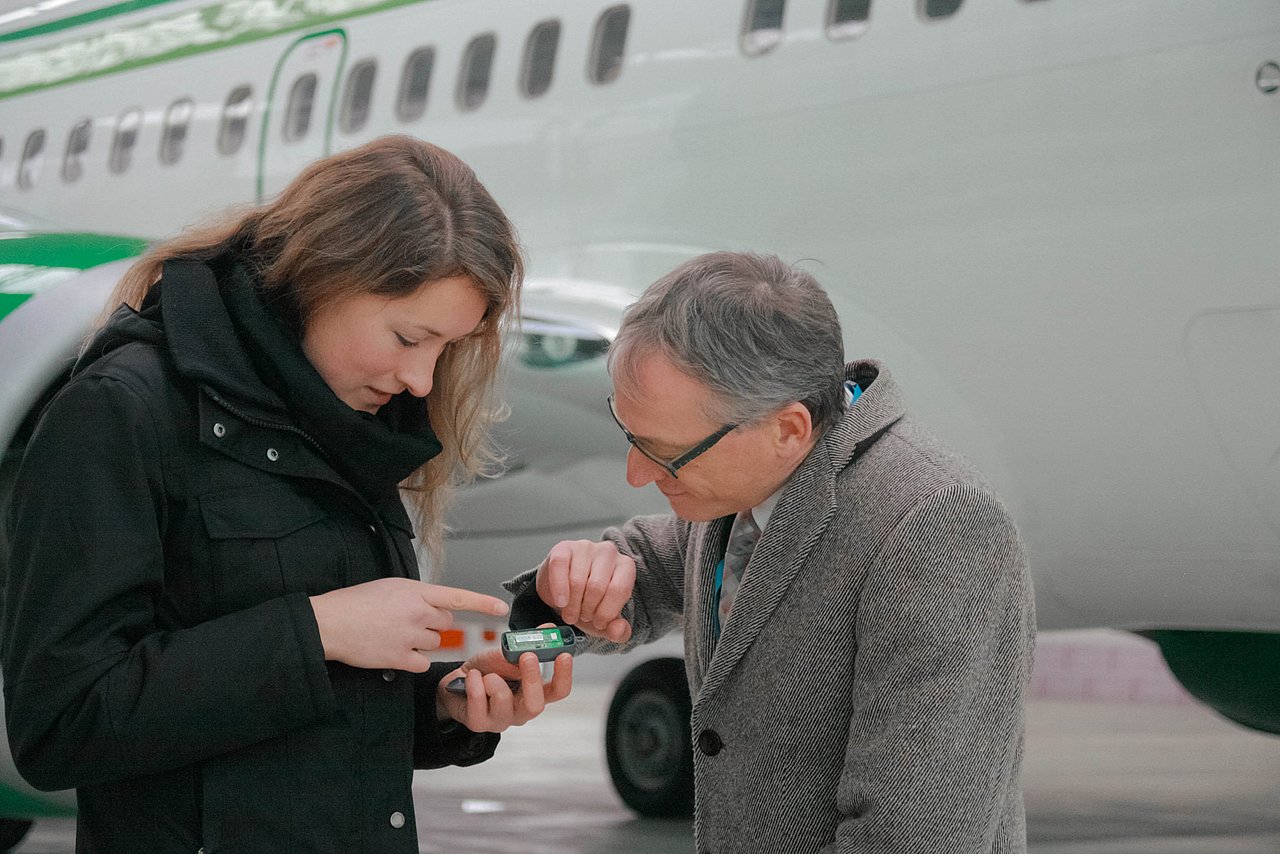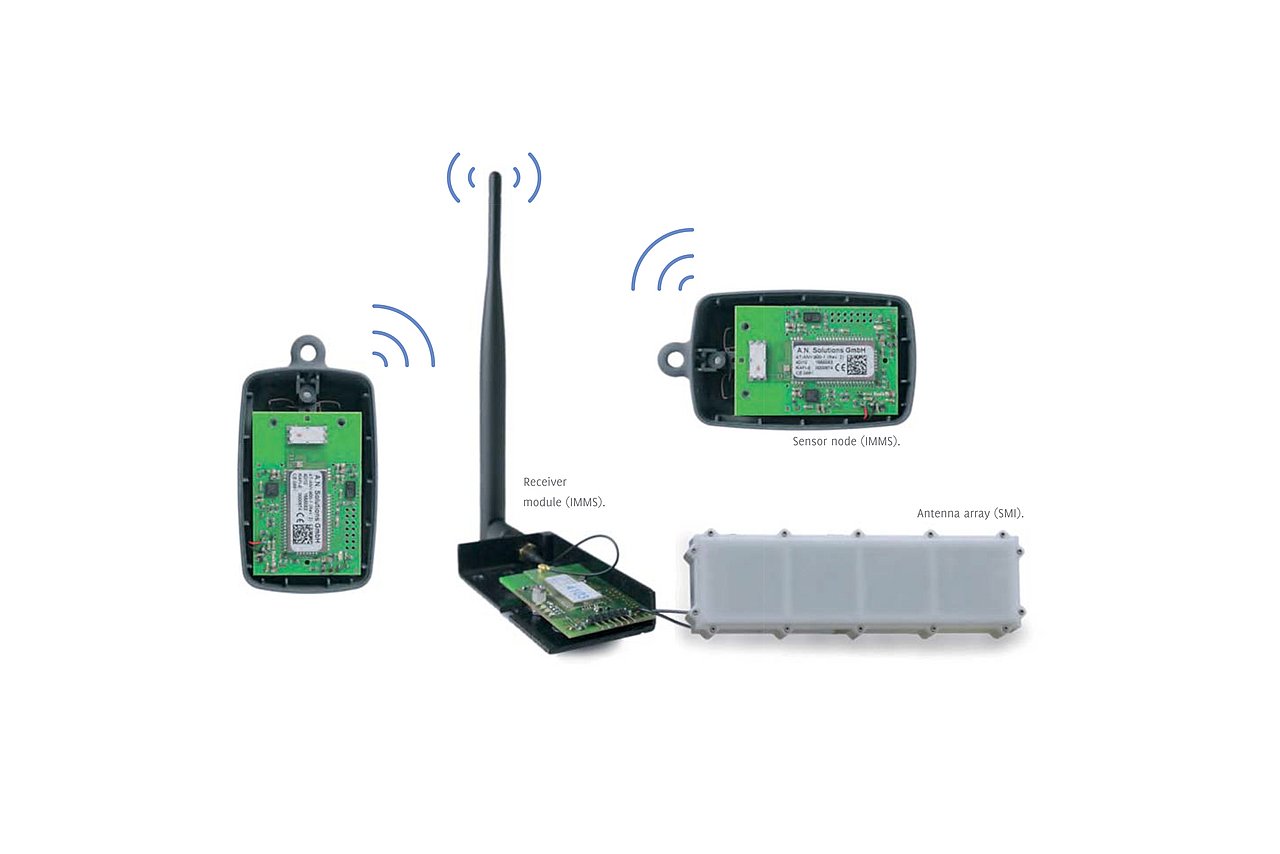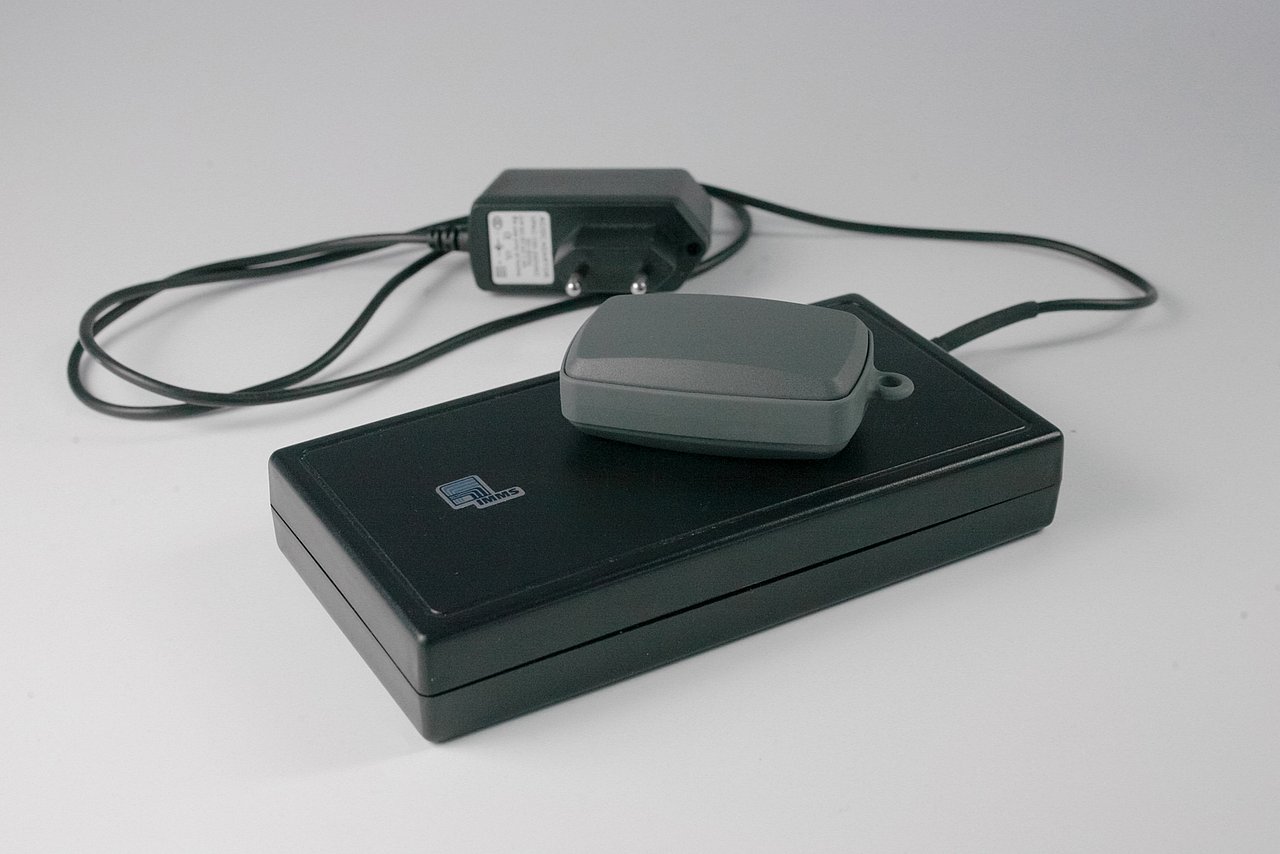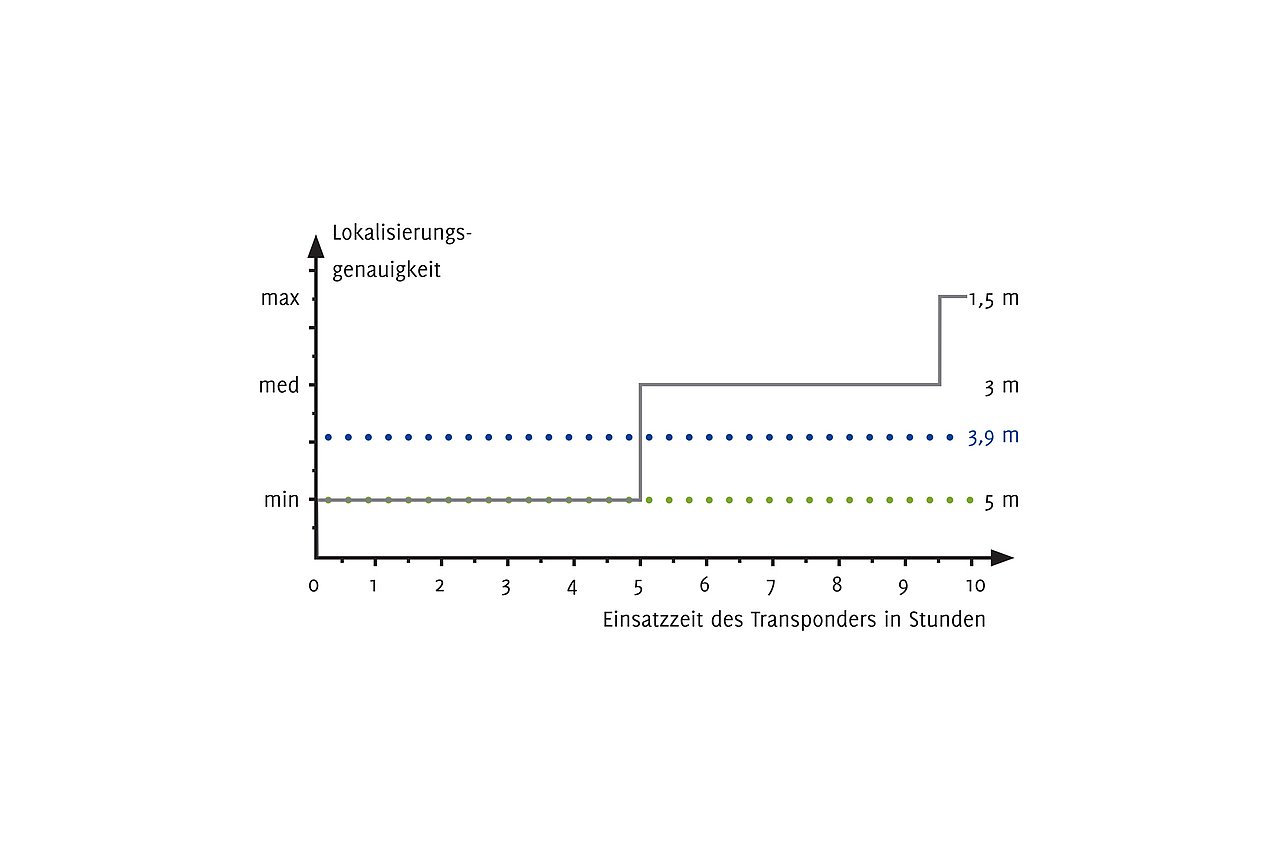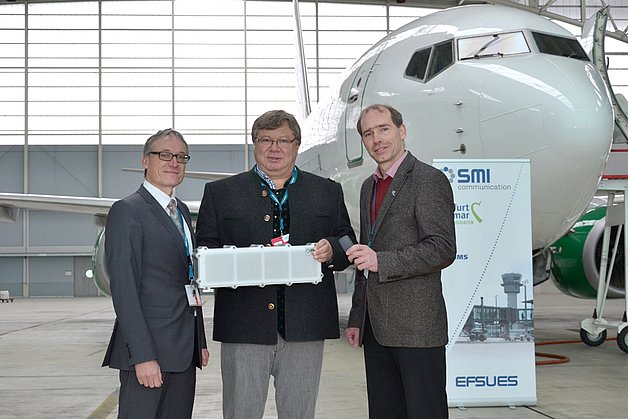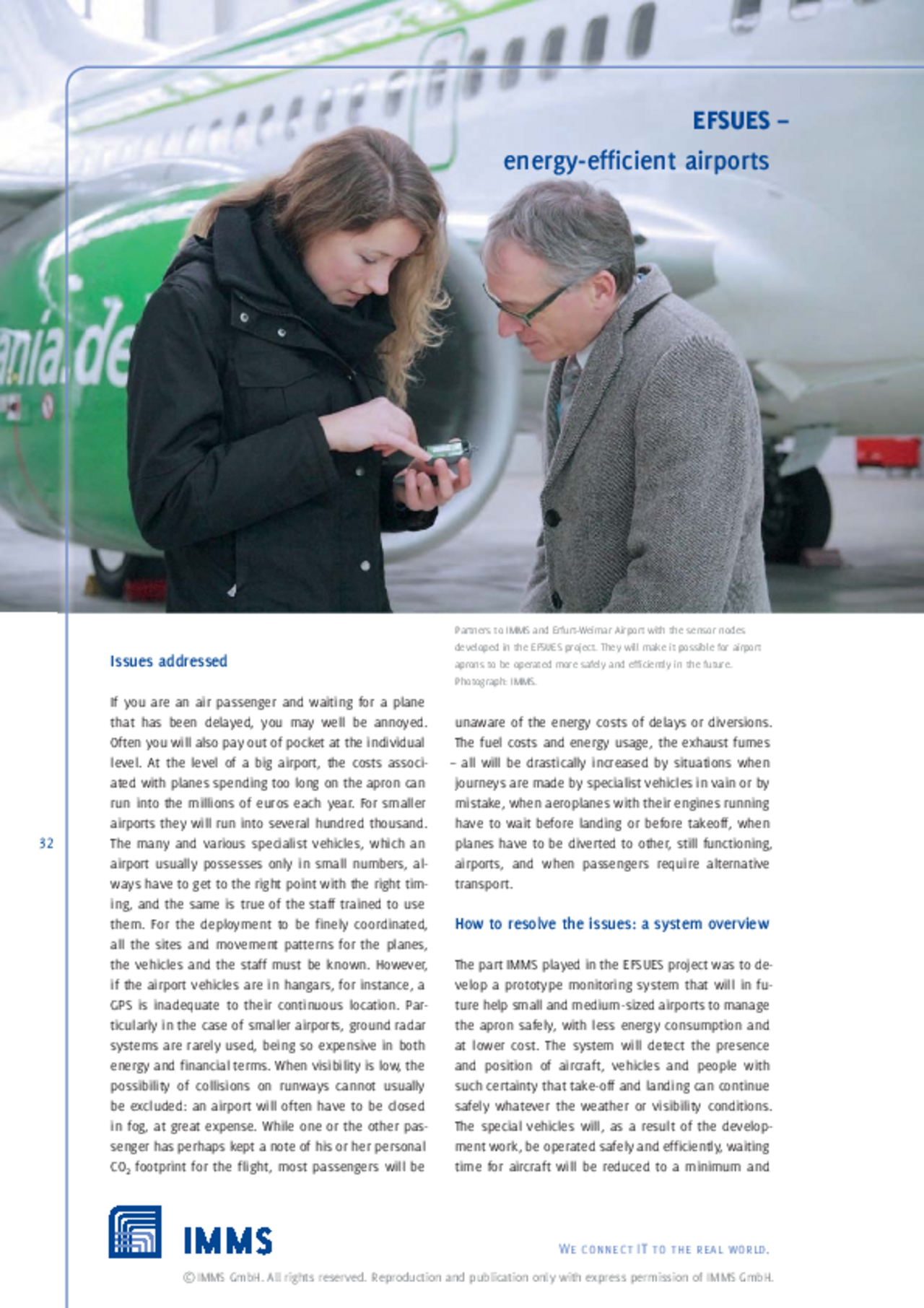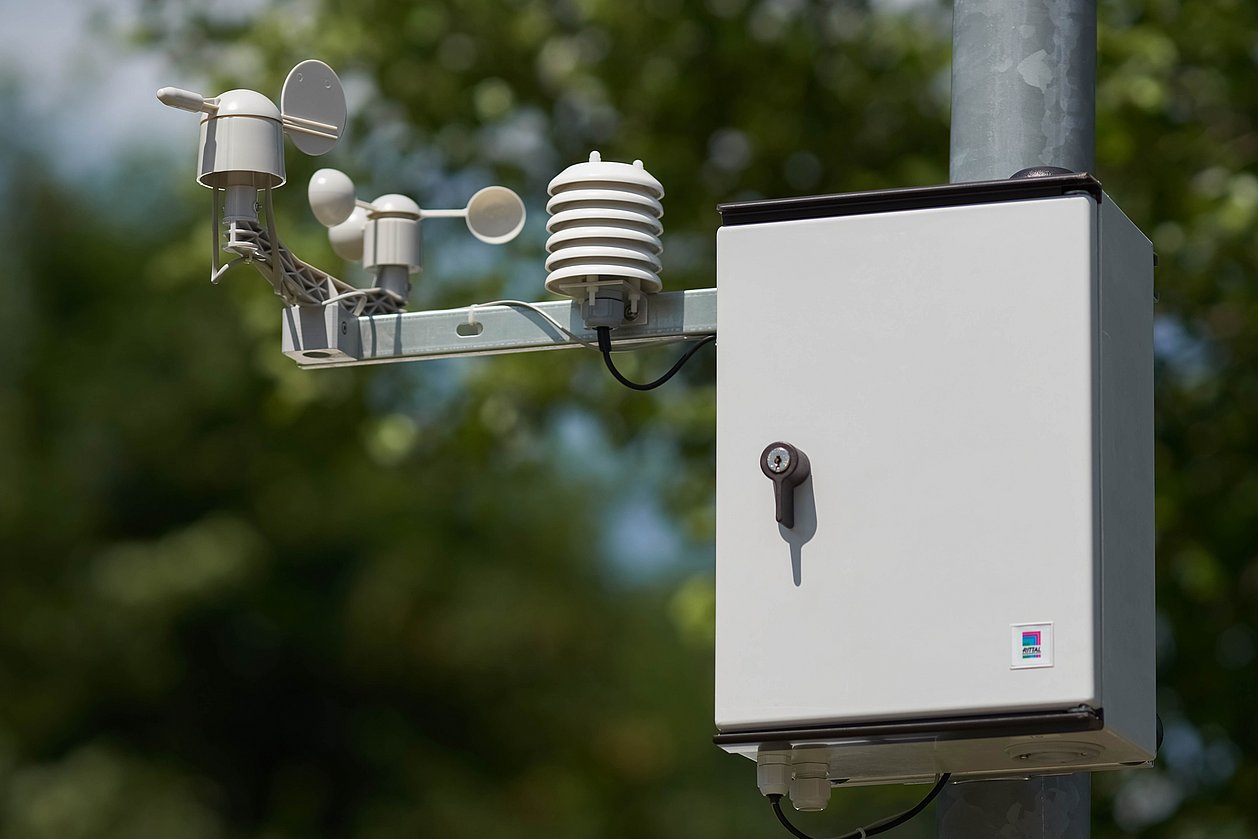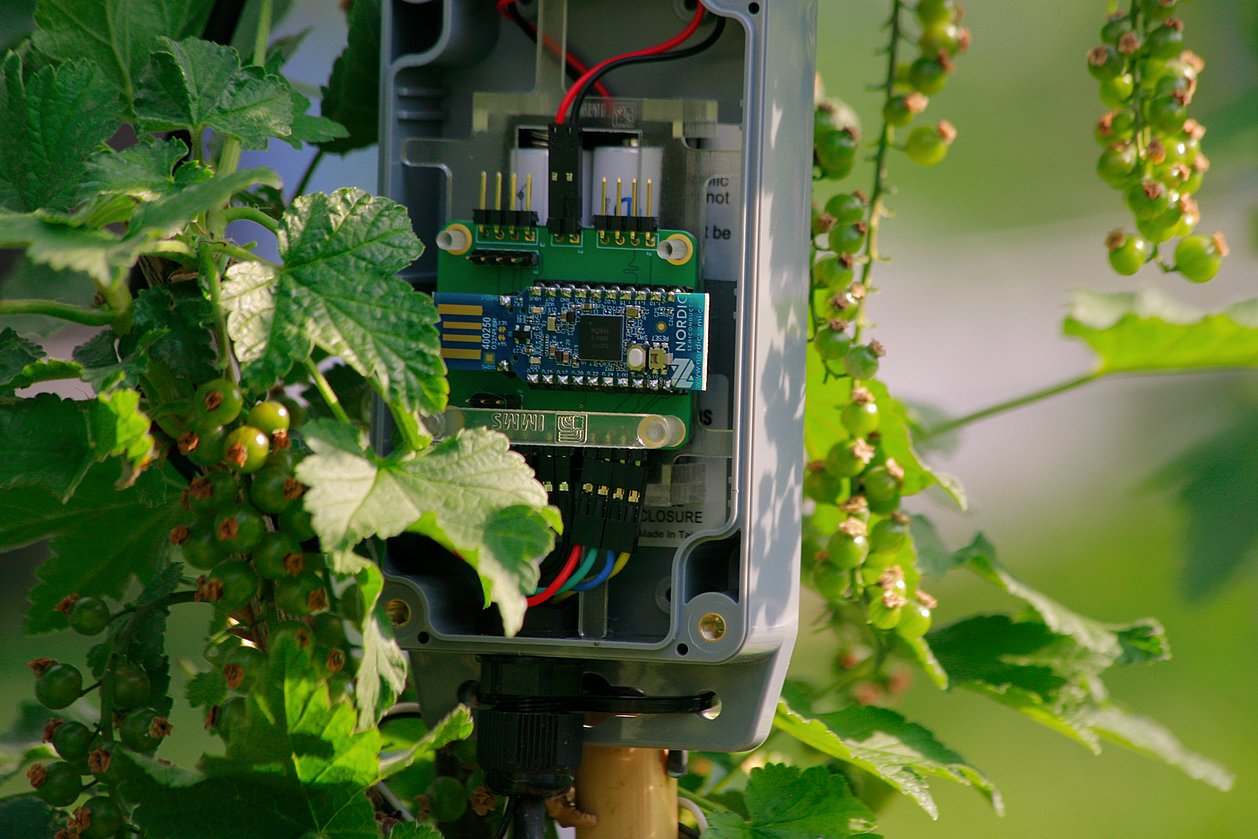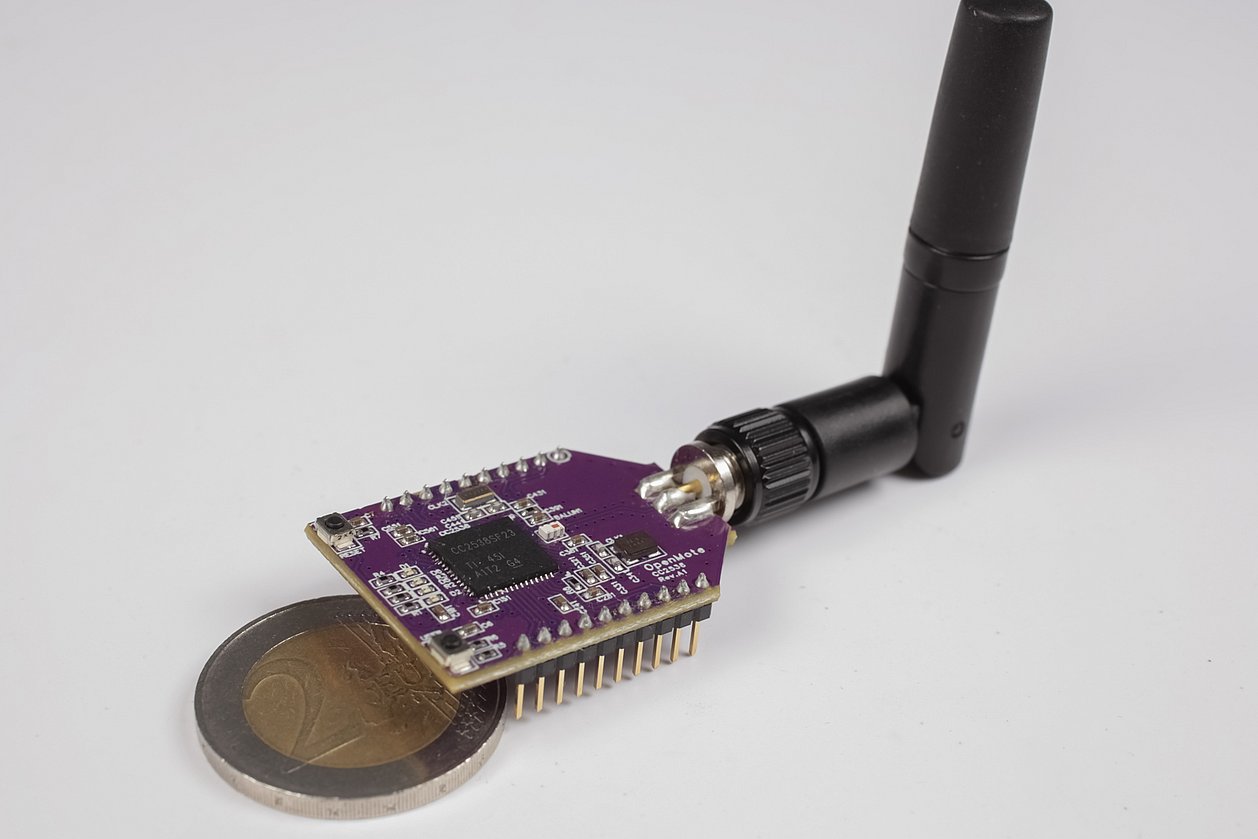Project EFSUES
IMMS developed energy-efficient wireless sensor nodes for the location of vehicles and people to manage the apron on airports safely and efficiently.
The part IMMS played in the EFSUES project was to develop a prototype monitoring system that will in future help small and medium-sized airports to manage the apron safely, with less energy consumption and at lower cost. The system will detect the presence and position of aircraft, vehicles and people with such certainty that take-off and landing can continue safely whatever the weather or visibility conditions. The special vehicles will, as a result of the development work, be operated safely and efficiently, waiting time for aircraft will be reduced to a minimum and traffic safety on the airport apron greatly improved.
It is a central component of the monitoring system that it should be possible to locate vehicles and people on the apron. IMMS developed sensor nodes for this purpose which include efficient energy management. Such efficiency is important because conventional location systems fail to prevent even vehicle batteries running quickly out of power. The new system equips each and every person and vehicle with the sensor node described, as an active transponder which broadcasts packets of radio signals at intervals. These go to the receiver modules, where they are recognised. Moreover, the modules identify the particular transmitter, trigger the location process and pass on the data to the upstream system.
IMMS developed the receiver modules and connected their hardware and software to the SMI antenna arrays which then execute the location of the relevant transmitter by computing the angle from which the signal comes.
Acronym / Name:
EFSUES / Apron Control and Monitoring System for the Improvement of the Energy Efficiency of AirportsDuration:2012 – 2013
Application:
|Localisation| SecurityResearch field:Smart distributed measurement and test systems
Related content
QoS-aware Ultra-low Power Wireless Sensor Networks
Elena Chervakova. Komla Agla. Wolfram Kattanek. Tino Hutschenreuther.Sense. Enable. SPITSE - Symposium 2014, 07.07.2014 - 11.07.2014, Ilmenau, Vortrag
QoS-driven Design and Operation of Adaptive, Self-organizing Wireless Sensor Systems
Elena Chervakova1. Wolfram Kattanek1.in 39th Annual Conference of the IEEE Industrial Electronics Society (IECON), Wien, Österreich, Nov. 2013, pp. 7720-7725, ISBN 978-1-4799-0223-1/13, DOI: doi.org/10.1109/IECON.2013.6700420
1IMMS Institut für Mikroelektronik- und Mechatronik-Systeme gemeinnützige GmbH, Ilmenau.ArticleQoS-driven Design and Operation of Adaptive, Self-organizing Wireless Sensor Systems
Elena Chervakova1. Wolfram Kattanek1.39th Annual Conference of the IEEE Industrial Electronics Society (IECON), Wien, Österreich, 10.-13.11.2013
1IMMS Institut für Mikroelektronik- und Mechatronik-Systeme gemeinnützige GmbH, Ilmenau.Talk
Contact
Contact
Dr.-Ing. Tino Hutschenreuther
Head of System Design
tino.hutschenreuther(at)imms.de+49 (0) 3677 874 93 40
Dr. Tino Hutschenreuther will answer your questions on our research in Smart distributed measurement and test systems and the related core topics Analysis of distributed IoT systems, Embedded AI and Real-time data processing and communications, on the lead applications Adaptive edge AI systems for industrial application and IoT systems for cooperative environmental monitoring as well as on the range of services for the development of embedded systems.
Funding
The EFSUES project was funded by the “Land” of Thüringen and the European Union, reference TNA XI-3/2012.


